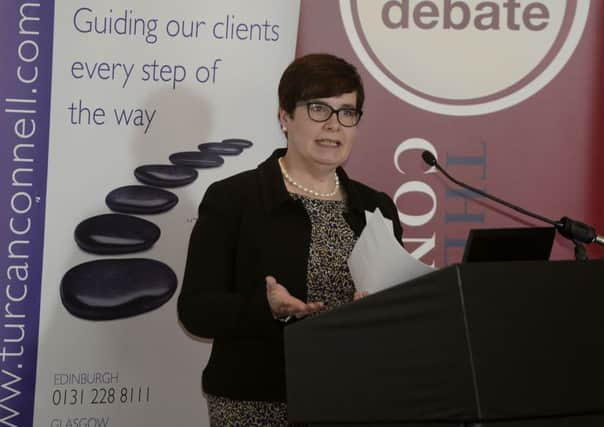Tartan taxes give business experts the ‘Willies’


Susie Walker, head of tax at Johnston Carmichael, said there was clearly the option to push the tax rates of top earners higher in Scotland; the UK top rate, for those earning over £150,000, is currently 45 per cent, but several European countries including Belgium, Denmark, Spain and Sweden have rates between 50 and 57 per cent.
If taxes did rise in Scotland, Ms Walker warned, “attracting and retaining talent may be an issue”. She added: “Job offers may need tax equalisation to be built in – and this would need to be considered for existing employees too; would employers pick up the extra cost?”
Advertisement
Hide AdAdvertisement
Hide AdBryan Buchan, chief executive of Scottish Engineering, said one of his members had already received the first request to indemnify a senior person against differential tax rates between Scotland and the rest of the UK.
Ms Walker also warned that the new Land & Buildings Transaction Tax (LBTT) could impact on high earners’ decisions about where they live. She noted that a £1 million property would attract a £77,300 transaction tax in Scotland after 1 April 2015, while a purchase of the same value would only cost £43,750 under the existing UK stamp duty regime. “That could have an impact and is not necessarily going to encourage innovative businesses to stay here,” she said, noting that there was less of a cross-Border gap on commercial property purchases.
Both Ms Walker and Alexander Garden, tax and succession partner at Turcan Connell, urged caution on fast-tracking Lord Smith’s proposals to devolve income tax rates and bands – and suggested allowing the system to settle in under the Scottish Rates of Income Tax (SRIT) legislation, due to be implemented in April 2016 under the Scotland Act 2012.
Mr Garden told The Scotsman Conferences seminar that there were a number of uncertainties – over Scottish tax rates, the timetable for implementing the Smith proposals and the difficulties and costs which might arise. He noted that the “amber” status on HMRC’s risk register for defining a Scottish taxpayer was now red. HMRC had not said why, but this largely applied to those who lived on both sides of the Border at different times and British nationals living abroad.
Ms Walker gave a number of examples where there could be a lack of clarity around defining a “Scottish taxpayer” – especially people who lived in Edinburgh at weekends but worked away all week. (Event chair Peter Jones described these people as ‘Willies’ – Work in London, Live in Edinburgh.) Mr Garden also raised potential issues around long leases and situations where a company rather than an individual owned a residential property.
Part of the definition of a Scottish taxpayer specified a “close connection” with Scotland or the fact that someone lived there more than anywhere else in the UK, Mr Garden said. Ms Walker warned that this could lead to the kind of Statutory Residence Tax now used by business people living in both the UK and abroad – and that it could come down to counting days spent in Scotland and elsewhere. In marginal cases, people would tend to use that “flexibility” to their advantage and might decide they did not want to be paying tax in Scotland if they were worse off as a result, she said.
Mr Garden favoured allowing the definition of a Scottish taxpayer to “bed down” under SRIT rather than fast-tracking the Smith proposals while there was still a lack of clarity. Ms Walker added: “Guidance is needed from HMRC quickly to bring this into practical operation – or there is huge potential for it to become an administrative nightmare. It might be better to delay and do it properly and efficiently rather than dashing in and not giving certainty over the tax position.”
Mr Garden thought differential tax rates would have an impact over time: “Inevitably, there will be a tipping point for certain people.”
Advertisement
Hide AdAdvertisement
Hide AdNicky Harrison, chief operating officer of Revenue Scotland, said: “It is too early to say if people will change their behaviour as a result of differential tax rates. There is no practical experience within the UK; it’s interesting new territory.”
Ms Walker thought there was also psychology at play, where 1 to 2 per cent on the top rate of tax might not make a difference, but 10 per cent certainly would.
COMING UP
Copyright & cultural heritage 2.0
2 February 2015
Is Scotland ready for fracking?
10 February 2015
Life Sciences: The Manufacturing Potential
24 February 2015
A digital land information database for Scotland
10 March 2015